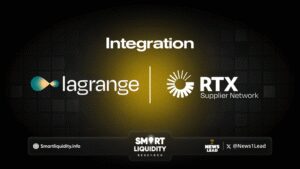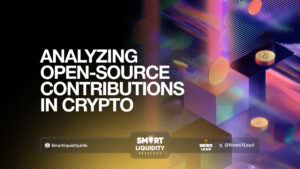The Next Wave of Spot ETFs


The ETF market has quietly transformed as spot Bitcoin ETFs entered mainstream finance, smashing records in inflows and trading volume.
But this milestone is just the start—the next wave of spot ETFs is set to redefine TradFi and digital assets, bringing fresh opportunities and risks for investors, institutions, and regulators.
From Futures to Spot: A New Foundation
Spot Bitcoin ETFs were more than just a product launch; they symbolized regulatory acceptance of crypto as an investable asset. Unlike futures-based ETFs, which track derivatives, spot ETFs hold the underlying asset directly. This shift not only improved efficiency but also signaled trust in the underlying infrastructure of custody, auditing, and liquidity.
The success of these products has already inspired a domino effect: investors are now wondering what comes next.
Beyond Bitcoin: Ethereum and the Layer-1 Contenders
Ethereum is the most obvious candidate for the next wave. Its transition to proof-of-stake, growing institutional interest, and expanding role in DeFi and tokenization make it ripe for ETF treatment. Approval of a spot Ethereum ETF would represent more than diversification—it would validate the idea that blockchains beyond Bitcoin can serve as institutional-grade assets.
Other Layer-1 networks, such as Solana, Avalanche, and Cardano, could follow, though regulatory clarity and market demand will play critical roles. If approved, these ETFs would provide investors direct exposure to ecosystems that power decentralized apps, NFTs, and token economies.
Sector-Based Crypto ETFs: DeFi, Web3, and AI Integration
Just as equity ETFs often focus on sectors (technology, healthcare, energy), crypto ETFs could evolve to reflect specific segments of the blockchain economy:
- DeFi ETFs: Bundling governance tokens from leading decentralized finance platforms.
- Web3 ETFs: Exposure to tokens that support decentralized identity, storage, and infrastructure.
- AI + Crypto ETFs: Capturing projects that integrate blockchain with artificial intelligence, a rapidly growing narrative in 2025.
This sector-based approach could appeal to investors who want exposure to crypto innovation without the complexity of managing multiple tokens.
Tokenization and Spot ETFs: The Convergence Play
Tokenization of real-world assets (RWAs) is another trend that could merge with ETFs. Imagine an ETF backed not by stocks or bonds, but by tokenized real estate, commodities, or even carbon credits. A spot ETF could provide liquidity, compliance, and accessibility, while blockchain ensures transparency and fractional ownership.
This convergence could bridge institutional capital with on-chain innovation, reshaping both markets in the process.
Global Expansion: Different Jurisdictions, Different Products
The U.S. has dominated headlines, but the ETF race is global. Europe, Canada, Brazil, and Asia are already experimenting with innovative ETF structures. In some jurisdictions, regulators may approve products tied to staking rewards, multi-asset baskets, or region-specific blockchains.
For investors, this global competition means more choice—and more complexity—as ETF structures vary widely across borders.
Opportunities and Risks Ahead
The next wave of spot ETFs offers significant upside:
- Accessibility: Simple, regulated exposure to complex assets.
- Liquidity: Institutional inflows that stabilize markets.
- Diversification: From single assets to entire sectors.
But risks remain:
- Regulatory Uncertainty: Each new product will face scrutiny.
- Custody Challenges: Securing multiple digital assets at scale is non-trivial.
- Market Concentration: ETFs may concentrate ownership among a handful of asset managers, raising decentralization concerns.
Spot ETFs — What’s Next?
ETF Type | Underlying Assets | Potential Impact | Key Risks |
Spot Ethereum ETF | ETH | Expands institutional adoption | SEC stance on ETH as security |
Layer-1 ETFs | SOL, AVAX, ADA, etc. | Diversification beyond Bitcoin | Liquidity, volatility |
Sector-Based ETFs | DeFi, Web3, AI tokens | Thematic exposure to innovation | Token risk, lack of clarity |
Tokenized Asset ETFs | Real estate, RWAs | Bridges TradFi with on-chain assets | Regulation, scalability |
Global ETF Variants | Regional assets/tokens | Tailored investor access | Inconsistent rules |
Conclusion
Spot Bitcoin ETFs marked a watershed moment, but they are only the first ripple. The next wave of spot ETFs will be broader, more complex, and more transformative, blending digital assets with traditional finance in unprecedented ways.
Investors, institutions, and regulators stand on the edge of a new era where ETFs are not just wrappers for stocks or bonds, but gateways into the future of decentralized economies. The question is no longer if the next wave will come—but which assets will lead it.




